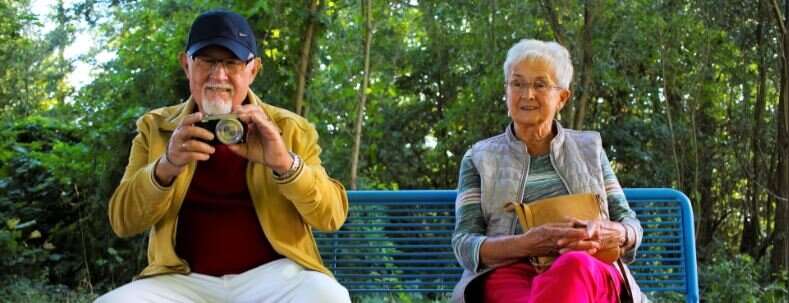

Later life can be a rich and fulfilling time, particularly if there is social-community engagement and meaning to everyday activity.
“Some of the most interesting and challenging pastimes can be low cost or free, and it’s important we continue to be flexible in the activities we choose and to adapt in ways that let us make use of our strengths without overtaxing our resources,” says Flinders University Associate Professor Tim Windsor.
“Remaining engaged with meaningful activities as we get older is an important part of ageing well,” he stresses in a new paper published in the Journals of Gerontology Series B—Psychological Sciences and Social Sciences.
International experts led by Flinders University studied the day-today activities of 73 adults aged 89 years on average, and assessed whether older participants reported more positive emotions at times when they rated their activities as more personally meaningful.
The Australian Daily Life Time-Sampling module of the Australian Longitudinal Study of Aging asked about a range of regular pastimes such as:
- Social activities (for example—meeting friends, talking to family, going to senior citizen centre, etc)
- Physical activities/health (e.g., going on a walk, gardening and exercising)
- Home management (e.g., housework, cooking and shopping)
- Activities with a cognitive focus (crossword puzzles, reading and finance management)
- Self care (e.g., body care, resting/napping, eating and physician’s visits)
- Productive activities (e.g., helping others and volunteering)
- Leisure activities (e.g., watching TV and listening to music).
“In all, no matter what people chose, respondents expressed a strong emotional connection to activities which still present them with achievable challenges,” says Flinders University Emeritus Professor Mary Luszcz, who has led the Australian Longitudinal Study of Ageing.
“As our western populations age, it’s important our service and volunteer organisations allow for different levels of engagement.”
The article, “Conscientiousness, Activity Engagement and Momentary Affect in Oldest-Old Adulthood,” has been published in the Journal of Gerontology B.
One seniors’ table tennis club in Adelaide has regular attendance from people mostly over 70 years old with 5 males and 1 female over 80.
Rod Nankivell, who oversees the Blackwood Hills Baptist Church Seniors’ Table Tennis Group, says about 15-20 members regularly meet on Monday and Thursday mornings in the activities room of the church.
The oldest member is Mr Colin Wynn who is 88 and in “good shape.”
“Enthusiasm is high with all our members, who have generally stayed with us once they start,” says Mr Nankivell.
Table tennis is an activity which engages hand/eye coordination, burns calories, improves mental acuity (the speed, spin and placement of the ball are crucial in table tennis, and practiced players are highly skilled in both creating and solving puzzles involving these three attributes), and is easy on the joints.
“We emphasize fun and fellowship and that is evident each morning we play.”
“We do not have competitions, but we do have some members who play competitively, and we have a few members who are being coached,” he says, adding one of the members was a former competitive player who has recently been diagnosed with Parkinson’s Disease.
Another player is 86, and in good health, and another turned 80 this year and still plays after two hip replacements.
Source: Read Full Article